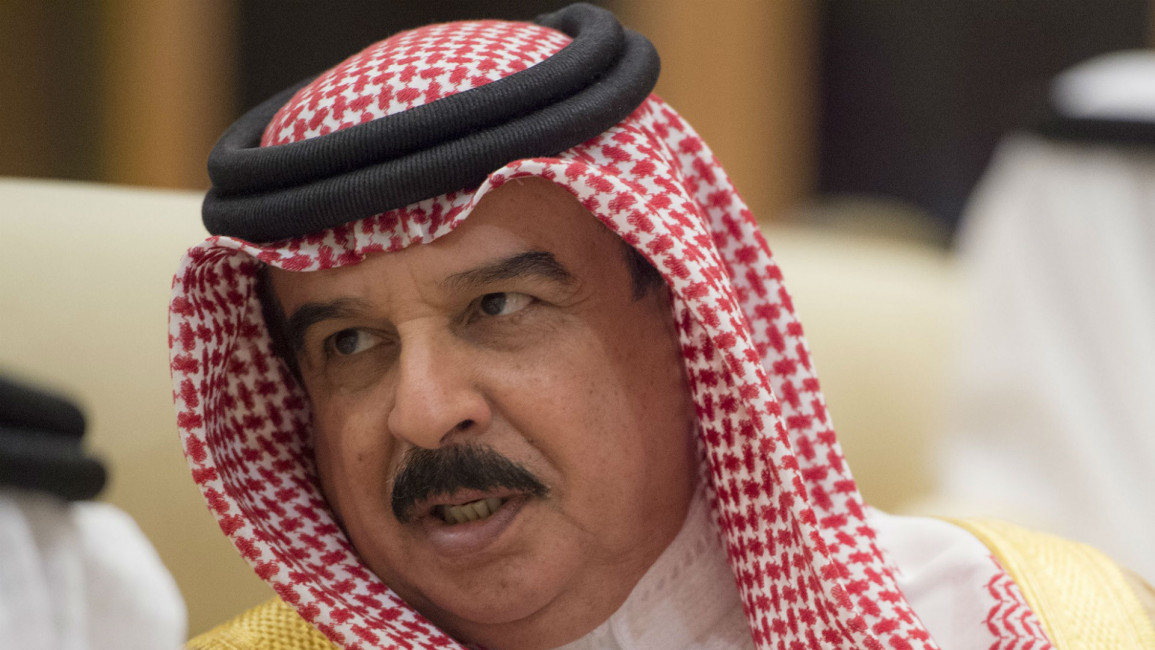Growing normalisation: Israelis to speak at Bahrain conference
Several Israeli speakers are to appear at a business conference in Bahrain next month, a move condemned by MPs in the tiny Gulf state on Sunday.
At least three Israeli speakers, including the Israel Innovation Authority's deputy chief Anya Eldan, are scheduled to speak at the Global Entrepreneurship Congress in Manama, according to the forum's website.
Members of parliament said on Sunday they were against hosting Israeli speakers in Bahrain, which - like most Arab states - does not recognise the Jewish state.
"Parliament stresses its support for the just cause of the brotherly Palestinian people, and it will remain a priority for the Bahraini and Arab people," it said in a statement published on its official Facebook page.
"The end of the Israeli occupation and the withdrawal from all Arab land is an absolute necessity for the stability and security of the region and for a fair and comprehensive peace."
Officially, Israel only has diplomatic relations with two Arab states, neighbouring Egypt and Jordan.
The Jewish state has long faced resistance to its efforts to improve ties with Arab nations because of its 50-year occupation of Arab territories.
It has, however, recently seen increased behind-the-scenes cooperation with some Arab countries, particularly in tackling their shared enemy, Iran.
Last year, Bahrain’s foreign minister, Sheikh Khalid al-Khalifa backed Israel's right to "defend itself" after its military said it struck dozens of Iranian military targets in Syria.
He said Iran had "breached the status quo in the region and invaded countries with its forces and missiles".
"Any state in the region, including Israel, is entitled to defend itself by destroying sources of danger," he wrote on Twitter.
Leaked video
More recently, a video leaked by Israel’ Binyamin Netanyahu revealed how senior Gulf Arab officials minimise the Palestinian cause and describe Iran as the greatest threat in the Middle East, AP reported.
"We grew up talking about the Palestine-Israel dispute as the most important issue," Bahraini Foreign Minister Khaled al-Khalifa says in the video taken during a closed meeting at the US-led Middle East summit in Warsaw.
"But then at a later stage, we saw a bigger challenge. We saw a more toxic one, in fact the most toxic in our modern history, which came from the Islamic Republic, from Iran."
Khalifa reportedly secretly met with former Israeli Foreign Minister Tzipi Livni in 2017 to seek diplomatic ties with Israel, which most Arab states have boycotted since the forced displacement of Palestinians during the formation of the state of Israel in 1948.
The Bahraini foreign minister went on to attack the "neo-fascist regime" in Iran, accusing it of plotting attacks in his country and destabilising Yemen, Syria and Iraq.
Netanyahu in February declared he would use the summit as an opportunity to make public his country's long-rumoured normalisation of ties with Gulf Arab states.
It seems the leaked video is one such opportunity to showcase the essence of the backroom talks the prime minister frequently boasts of.
It featured a series of comments made by officials from Bahrain, Saudi Arabia and the United Arab Emirates during a panel discussion at the summit
Although most Gulf Arab states have made their animosity toward Iran well known, minimising the importance of the Israel-Palestine conflict is more taboo.
"Who is supporting Hamas and Islamic Jihad and undercutting the Palestinian Authority?" asked Saudi Arabia’s minister of state for foreign affairs, Adel al-Jubeir. "Iran."
Jubeir accused Iran of hurting the Palestinian cause through its support for militant groups such as Hamas.
The edited, 25-minute video, recorded on a mobile device, was briefly made available to a group of journalists traveling with Netanyahu before it was swiftly removed from YouTube. It was not clear whether the video was intentionally leaked or accidentally uploaded.
It was not clear why the video was taken down, but the decision indicated the Gulf officials featured, whose countries do not have formal relations with Israel, had not consented to its release.
Also in 2018, Bahrain hosted a UNESCO conference attended by an Israeli delegation.
Follow us on Twitter: @The_NewArab



